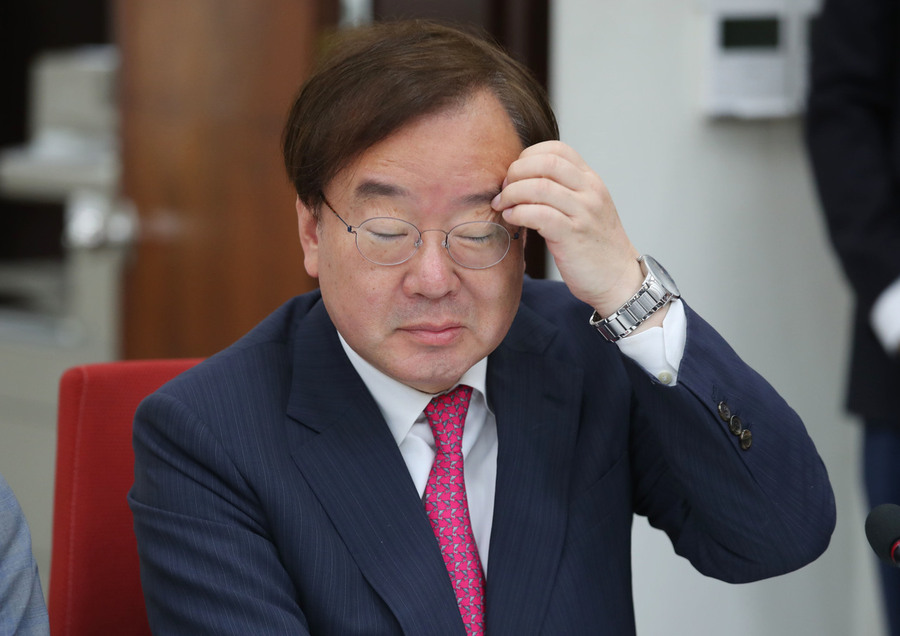 |
|
Liberty Korea Party lawmaker Khang Hyo-shang undergoes a special Blue House investigation at the National Assembly on May 23 regarding a leak of diplomatic secrets to the press.
|
Other diplomat who initially revealed contents of presidential phone conversation given light punishment
A diplomat at the South Korean Embassy in the US was dismissed on May 30 for leaking the content of a telephone conversation between the South Korean and US heads of state to his former high school classmate, Liberty Korea Party (LKP) lawmaker Khang Hyo-shang. Another diplomat who allowed his colleage – identified by the initial “K” – to read the particulars of the conversation was given an unexpectedly light punishment with a three-month reduction in pay. The Ministry of Foreign Affairs (MOFA) announced that the decisions had been made at a disciplinary committee meeting earlier that morning at the Central Government Complex annex (ministry office) in Seoul’s Jongno district. Meeting with reporters that afternoon, a senior ministry official explained that the committee had approved K’s dismissal due to the “severity of the impropriety, which constituted gross negligence.” The remarks suggest the ministry concluded that the leak had not been intentional. MOFA had originally been leaning toward the interpretation of K’s actions as intentional in light of the repeated nature of the leaks, noting that K appeared not only to have shared the content of the May telephone conversation with Khang but also the fact that Blue House National Security Office Director Chung Eui-yong had attempted to meet with US White House National Security Advisor John Bolton in March only to be refused, as well as details from working-level discussions on a South Korea-US summit in April. K acknowledged leaking details from the May conversation, but contended that this was “not intentional,” explaining that Khang had “said he would be the only one looking at them.” Most observers were predicting a dismissal for K even before the disciplinary meeting was convened. Calls for a severe reprimand had been widespread, with President Moon Jae-in opting to personally apologize to the public as the unprecedented situation – with K supplying requested content from a conversation classified as a Class 3 secret to Khang, who then made it public through a press conference – escalated into a political issue. A dismissal represents the heaviest level of punishment for a government employee according to the State Public Official Act. If finalized, the decision will result in K’s severance pay and government employee pension being reduced by half and limit his eligibility for employment as a government employee for a period of five years. K’s dismissal would be finalized with the approval of the president, who holds appointment authority, following a decision by the Ministry of Personnel Management (MPM) around next week. But with K expected to submit a petition, the final decision on his fate appears likely to be made after a review by the petition review committee. The diplomat who disclosed the particulars of the two leaders’ conversation to K was referred to the disciplinary committee with a recommendation for severe action (dismissal, removal, demotion, or suspension) for neglect of confidentiality management duties, but ultimately received a light punishment. The decision, which indicates a conclusion that the leak represented a low level of impropriety and slight negligence on the staffer’s part, appeared to reflect consideration for the practice of sharing texts as necessary due to the nature of diplomatic work. In particular, most or all of the four outside members of the disciplinary committee are believed to have supported light disciplinary action. MOFA also plans to refer an additional senior embassy official to the central disciplinary committee next week for possible punishment. By Kim Ji-eun, staff reporter Please direct comments or questions to [english@hani.co.kr]






